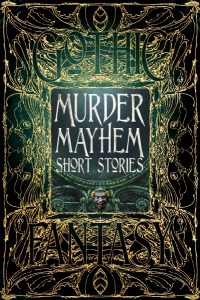SUPERHERO’S FRIEND: You mustn’t ever kill anyone. You can never come back from that.
SUPERHERO: I’ve already killed someone.
SUPERHERO’S FRIEND: Oh. Well – you can totally come back from that!
SUPERHERO’S FRIEND: You mustn’t ever kill anyone. You can never come back from that.
SUPERHERO: I’ve already killed someone.
SUPERHERO’S FRIEND: Oh. Well – you can totally come back from that!
Here are two facts that you’ll already know if you’re a Star Trek fan. But have you put the two together before?

1. “The Cage,” Gene Roddenberry’s original Star Trek pilot episode, featured a female first officer on the Enterprise, known only as Number One. The network, skittish about having both such a prominent female character and that demonic-looking alien named Spock, told Roddenberry he had to lose one or the other. Roddenberry chose to keep Spock and dump Number One.
2. In “Lethe,” the sixth episode of the current series Star Trek: Discovery, Sarek learns that although both his half-human son Spock and his adopted human daughter Michael Burnham (who will later be first officer on the Shenzou) have qualified for the Vulcan Expeditionary Force, the leaders of the VEF are leery of Sarek’s “experiments” rearing “not-quite-Vulcans,” and so have decided that they will accept only one, not both. They leave the choice up to Sarek, who decides to let Spock rather than Michael get the post.
I just now put these two facts together for the first time. I don’t think it’s a coincidence that twice someone is forced to choose between Spock and a female first officer, and chooses Spock. I feel pretty certain that the fictional choice in Discovery was a reference to Roddenberry’s real-life choice. I haven’t see anyone else comment on this.
I can’t recall ever seeing as big-budget-looking an SNL skit as this one:
What happens when a knife-wielding 36-year-old burglar matches off against an unarmed 65-year-old cancer survivor?
The director of Black Panther explaining the details of a fight scene:
I’ve been reading several volumes in Flame Tree Publishing’s Gothic Fantasy series; each anthology collects a number of classic public-domain stories of mystery, horror, science fiction, etc., along with newer stories written especially for the series. The series is a lot of fun, though not without faults (the stories contain a number of misprints, and the newer stories are filled with grammatical errors).

But one feature particularly puzzled me. In the volumes I’ve read so far, the title “Miss” invariably appears with a period after it; for example, “I suppose you mean that you go about all day long with Miss Sybil Merton” becomes “I suppose you mean that you go about all day long with Miss. Sybil Merton.” (And comparison with the original stories confirms that the publisher is adding a period where there was none before.)
I think I’ve figured it out, though.
In contemporary British usage, abbreviated titles that end with the same letter as the unabbreviated title do not use a period (or, in British usage, a “full stop”), while in American usage they do. Thus where Americans would write “Mrs. Jones met Dr. Smith,” their British counterparts would write “Mrs Jones met Dr Smith.”
Yet although Flame Tree Publishing is a British press, these anthologies follow American usage with abbreviated titles. I suspect that’s because they’re marketed more for the American than for the British market (my local Books-a-Million carries large stacks of them).
So my guess is that the publisher, noting that Americans put a period after all abbreviated titles, and forgetting that “Miss” is not an abbreviation, must have assumed that those crazy Americans put a period after “Miss” as well, and duly did so throughout in order to conform to the supposed American usage.
| M | T | W | T | F | S | S |
|---|---|---|---|---|---|---|
| 1 | ||||||
| 2 | 3 | 4 | 5 | 6 | 7 | 8 |
| 9 | 10 | 11 | 12 | 13 | 14 | 15 |
| 16 | 17 | 18 | 19 | 20 | 21 | 22 |
| 23 | 24 | 25 | 26 | 27 | 28 | 29 |
| 30 | 31 | |||||